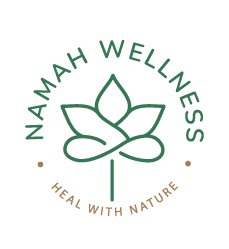The Hidden Role of Stress in Gut Health
Life can be challenging.
Everything we encounter in life—whether food, emotions, or experiences—needs to be processed by our body and mind.
Life can be challenging, and every person has a story that would break your heart. Stress is inevitable, but Ayurveda, the ancient system of medicine from India, provides a holistic way to address stress, anxiety, and emotional toxins. Ayurveda teaches that everything we encounter in life—whether food, emotions, or experiences—needs to be processed by our body and mind. Stress is processed by the body in much the same way as the food we consume. When we are unable to effectively digest and manage stress, it can lead to significant disruptions in our digestive health, impacting overall well-being.
Conserving Our Resources: Managing stress is not just about relaxation; it's about conserving and wisely using our resources. We need resources—like energy, strength, and digestive ability—to process everything we encounter. These resources are conserved or depleted based on how we manage our lives. From food and exercise to sleep and emotions, each aspect of our life impacts how well we process stress.
For instance, when we consume high-quality, organic, home-cooked food, our body can easily process and nourish itself. In contrast, when we eat pesticide-laden or highly processed foods, our body faces the extra burden of processing toxins. The key is to use our energy wisely and focus on what nourishes us, not what drains us. By choosing the best quality food we can afford and being mindful of what we sign up for, we conserve energy for processing life’s experiences.
Morning Rituals: One powerful way to reduce stress is through establishing a calming morning routine. Start your day by lighting a lamp or candle, sitting for meditation, and journaling. I love incorporating affirmations, visualizations, exercise, reading, and silence into my mornings. This routine, inspired by the book The Miracle Morning, helps to center the mind and conserve emotional resources before the day gets busy.
Yoga and Meditation for Stress Relief: Yoga is a fantastic tool for processing and releasing stress lodged in the body. By coordinating movement with breath, yoga becomes a form of moving meditation, helping you stay present in the moment and release emotional toxins. Meditation, whether done in silence or with a mantra, is an essential part of my daily routine. Even though I’m not always able to do it consistently, I try to meditate a little bit at a time throughout the day, especially checking in before and after meals, sleep, and exercise.
A specific ritual I learned from Dr. Vasant Lad involves mindful bathing, where you check in with yourself during the process, enhancing mindfulness and stress relief.
Mindful Movement and Fasting: Walking meditation or "forest bathing" is a calming practice that doesn’t focus on getting exercise but on being fully present in nature. Yoga itself can be a form of mindfulness when you focus entirely on the pose, letting go of thoughts of the future or past.
Fasting can also promote mindfulness. Skipping snacks between meals or even fasting from dinner once a week allows your body to rest, reducing stress on your digestive system and fostering clarity. Just make sure to stay hydrated with herbal teas or lemon water.
Follow Your Purpose: Stress often comes from feeling disconnected from your purpose. Following your dharma—your true calling—can help energize and uplift you, even when life feels draining. Ask yourself: What are your unique talents? What are you most generous with? Fulfilling your dharma doesn’t just reduce stress; it fuels your evolutionary journey.
For me, sharing and teaching others how to use ancient practices to improve their lives is part of my dharma. It brings me immense satisfaction and motivates me to continue, even during challenging times.
Emotional Toxins and Detoxification: Unprocessed emotions accumulate in the body over time, creating blockages and increasing stress. These "emotional toxins" can eventually manifest as disease if not properly addressed. Detoxification is a gentle, natural way to clear these toxins, but it should be done mindfully. Simple practices like drinking herbal teas and taking time to slow down can support your body in processing emotional stress.
Marma Therapy: Marma therapy, a practice similar to acupuncture, can also be helpful for stress relief. By stimulating specific points on the body, we can help release blockages and promote the free flow of energy. The best part is that you don’t need to set up an appointment with a professional—you can apply gentle pressure to marma points yourself for quick relief.
Conclusion: Reducing stress naturally requires building resilience, using our resources wisely, and processing the emotions and experiences we face each day. By incorporating mindful practices like yoga, meditation, following your dharma, and eating nourishing food, you can reduce stress and bring balance to your body and mind. Ancient wisdom offers a holistic path to help you navigate life’s challenges with grace and ease.


